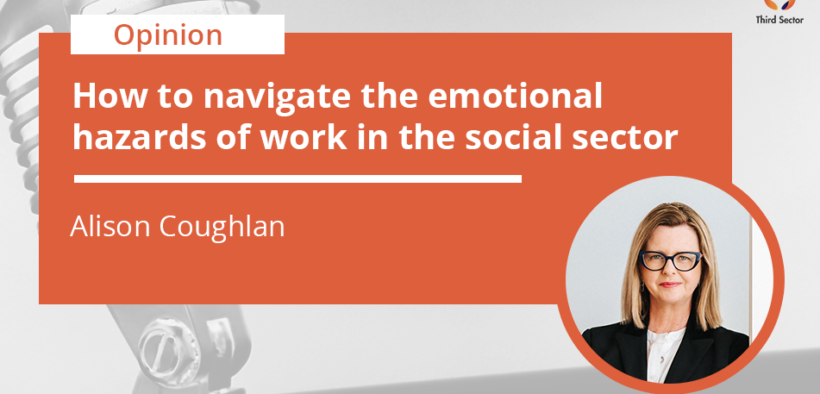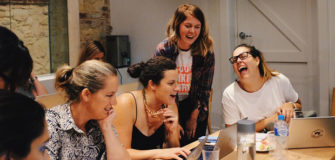In the social sector, our business is about creating change. Change in the life of individuals, families, communities and society through our spectrum of work across all stages of life, with people from all walks of life.
We apply our skills (technical and interpersonal) to provide care, relief and hope, and to prevent ill health and suffering. The choice to work in the social sector is often associated with a passionate personal drive – a sense of vocation, even. As human beings, we are fundamentally makers of meaning and when we engage in work that is intrinsically linked to our core purpose, it can bring great fulfilment and meaning to our lives. However, as we go about this work, the passion and heart that we put into it, that are essential to our effectiveness, also put us at risk.
What we witness, and the emotions that we feel can drain us of our energy and wellbeing. The separation between work and the rest of our life can blur. Our work can impact our life both positively and negatively. And our personal challenges can also impact our capacity to sustain the energy and wellbeing we need for our work.
Despite warning signs – if we notice them – we often just keep going, putting our own needs aside as we continue to turn up to serve our families, our communities and the beneficiaries of our work.
Beyond just sustaining ourselves, we can become depleted and, at worst, reduced to nothing as the literal definition of burnout suggests:
“The reduction of a fuel or substance to nothing through use or combustion.”
Burnout is a health hazard that we each need to take very seriously, now.
What you can do to successfully navigate the emotional hazards of your work
1. Focus on your wellbeing
It is only through a focus on your wellbeing – and working to get yourself to a place where your energy and wellbeing are optimised – that you will be able to learn and grow, to take risks, to face challenges, and to be resilient when crises inevitably occur.
2. Don’t wait for someone to rescue you
You are the only person who can make the choice for yourself to chart a different course in your work and your life. No one is coming to your rescue – you need to rescue yourself.
3. Put yourself first
Putting yourself first is, in fact, the only way that you can be of service to others in an optimal and sustainable way. A lack of self-compassion limits your capacity to sustain your efforts. It limits the impact you make and, as a result, also limits the connection between your work and your sense of purpose and meaning. It affects the lives and work of others in a negative way and ensures you become part of the problem, not the solution.
4. Accept 100 per cent of personal responsibility for yourself
You are the only person who can choose to chart a different course in your work and life. Be 100 per cent responsible for you, the choices you make and the consequences of those choices – for how you respond to the circumstances of your life and work, and to the behaviour of others. Do not take responsibility for the choices of others or for their behaviour. That is their responsibility.
5. Create a Personal Impact Plan
Create your personal plan that guides you to make an optimal impact but not at the cost of your wellbeing and other things that matter to you most in life. Tangible goals, feasible actions and an enabling mindset to chart a course to “better”.
6. Set an example for others
The social sector needs self-determined leaders, at every level in every role, who have energy to burn, and who reject burnout as inevitable and the norm. This has to start with getting ourselves in good shape – so that we can go the distance and so that we can then influence the much-needed reforms in our sectors.
You matter, the work you do matters, and your life matters too. The primary responsibility for you starts and ends with you, and you need to take control, restore wellbeing and optimise impact.
Alison Coughlan is the author of The Health Hazard: Take control, restore wellbeing and optimise impact. Alison draws on more than 25 years’ experience in the health and social sectors and her personal experience of reaching, sustaining and recovering from burnout, after which she charted a new, more fulfilling and sustainable path for her work and her life.
























































































































































